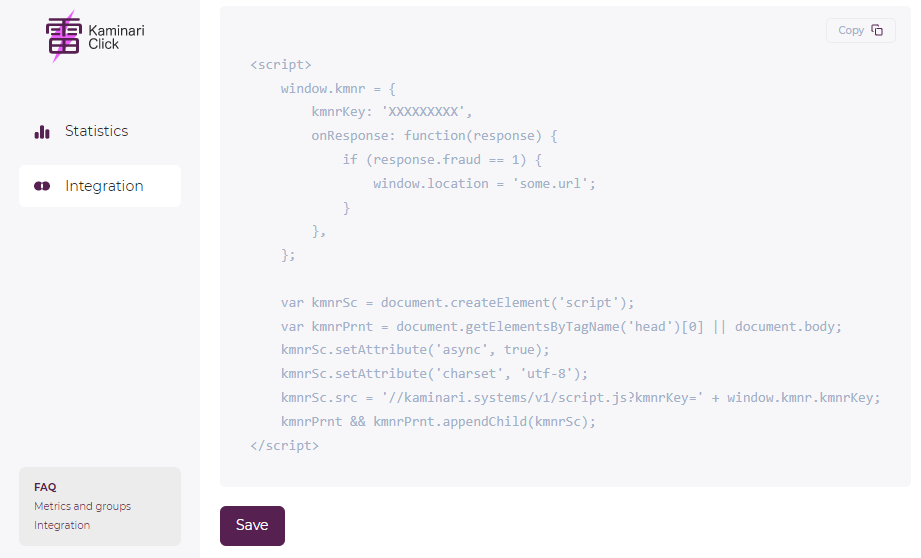On Response: Difference between revisions
No edit summary |
|||
| Line 40: | Line 40: | ||
<!--T:10--> | <!--T:10--> | ||
= Interaction with Traffic-back URL = | = Interaction with Traffic-back URL = | ||
If you have an integration with both the '''onResponse''' and '''[[Traffic_back_URL|Traffic-back URL]]''' options enabled, keep in mind that '''onResponse''' takes precedence. In this case, the '''Traffic-back URL''' will be ignored. | |||
<!--T:11--> | <!--T:11--> | ||
[[Category:Features]] | [[Category:Features]] | ||
</translate> | </translate> | ||
Revision as of 15:56, 30 November 2023
If you want to take control of handling fraudulent impressions yourself, for example, redirecting them to different URLs based on the traffic source, the onResponse option will assist you.
Please note that this option is only available in JS check type integrations.
Option Activation
Request the activation of the onResponse option from your manager for your integration. Once enabled, implement its logic after activation.
After implementing the function, it will appear in the window.kmnr.onResponse field in the generated script code, which you can copy using the Copy button and place on your page within the <head> tag.
Signature
The function takes as argument object { fraud }, where fraud can have a value of 0 (legitimate impression) or 1 (bot impression).
function(response) {
if (response.fraud == 1) {
// bot
window.location = 'some.url';
} else {
// not a bot
showAd();
}
}
Interaction with Traffic-back URL
If you have an integration with both the onResponse and Traffic-back URL options enabled, keep in mind that onResponse takes precedence. In this case, the Traffic-back URL will be ignored.

